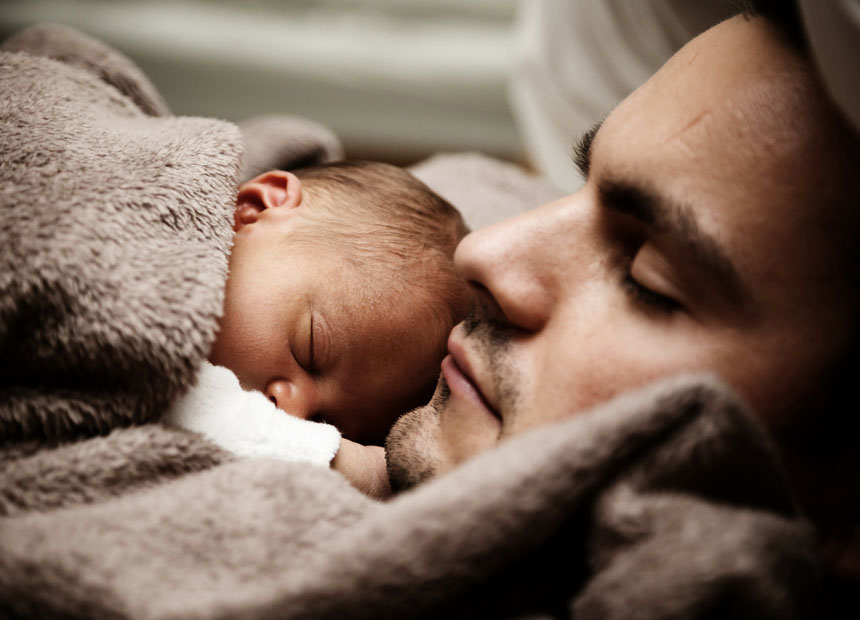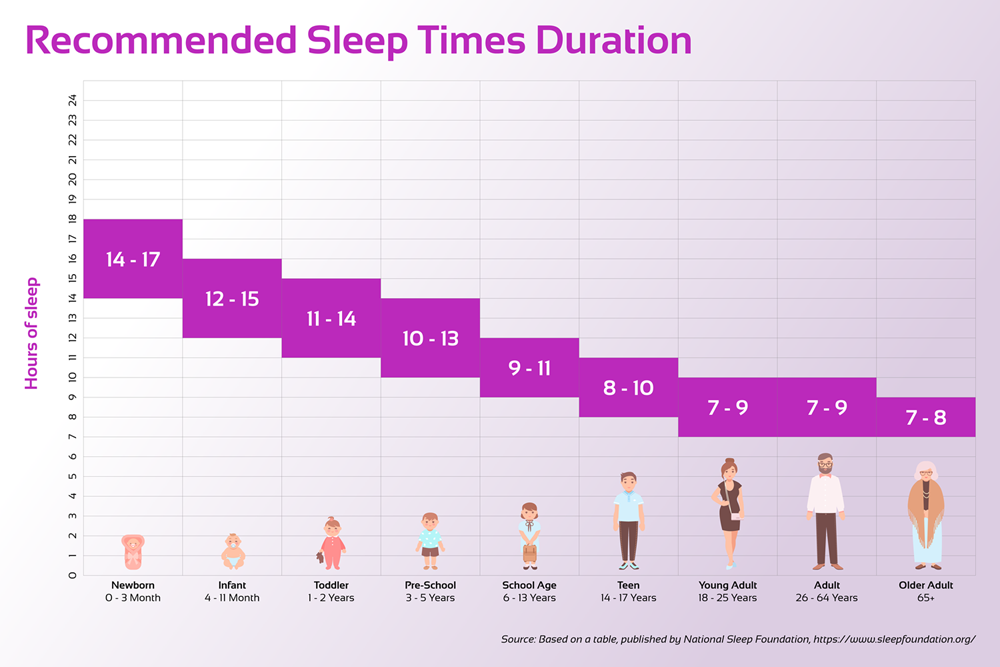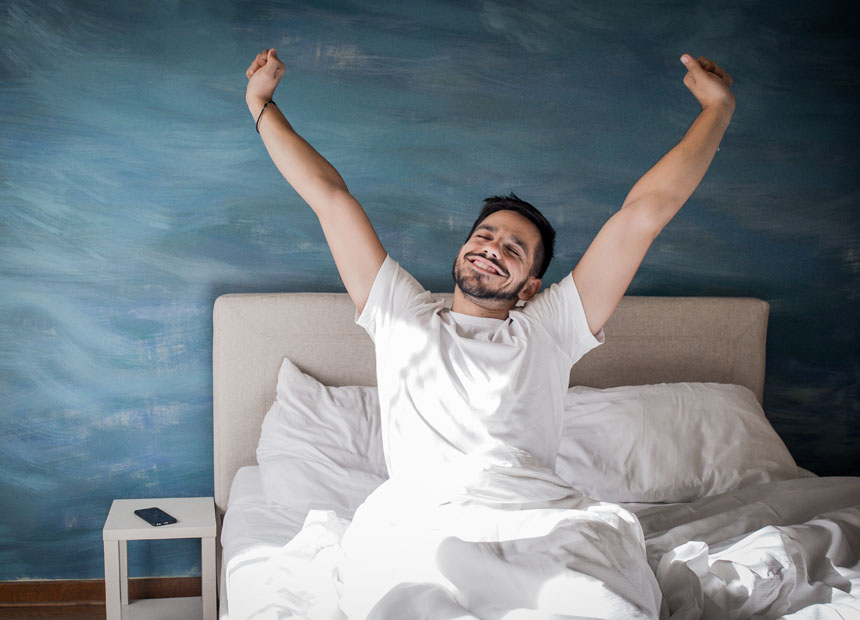
Slept late: how much sleep is optimal?
Irregular working hours, distractions from digital media, worries at work or at home – many factors make it difficult for us to fall asleep these days and usually keep us awake far too long. Everyone knows the short-term consequences of too little sleep: exhaustion, listlessness and lack of concentration. According to estimates by the National Institute of Health, about 30 per cent of the population complain about sleep disorders.

Risk of sleep deprivation
With permanently little sleep we even damage our mental, spiritual and physical health. According to psychologist and sleep researcher Hans-Günter Weeß, even two hours' less sleep increases our risk of colds and high blood pressure as well as the probability of being overweight. Current research shows the great importance of sleep for the recovery and regeneration of the body. People who get sufficient sleep are demonstrably more efficient, have a better immune system and are usually also in a better mood.
Optimum sleep duration varies for everyone
There are therefore good reasons to give high priority to enough sleep. However, there is no general answer to the question of the optimal duration of sleep. This depends on the quality of sleep on the one hand and genetic factors on the other.
The non-profit organisation National Sleep Foundation in the USA has conducted one of the largest scientific studies on optimal sleep duration to date. The 18 experts from the research group agree that the optimal sleep duration varies from person to person and is influenced by many factors. Nevertheless, the researchers succeeded in developing recommendations for the minimum, average and maximum sleep duration.
Seven to nine hours' sleep for adults
While new-borns still need 14 to 17 hours of sleep per day, schoolchildren need only nine to eleven hours and teenagers between eight and ten hours. From adulthood on, the recommendation for the average duration of sleep is seven to nine hours, from the age of 65 only seven to eight hours (find the most important facts about sleep in our infographic). The following graph shows the recommended sleep duration per phase of life in the dark blue area as well as the recommended upper and lower limits for short and long sleepers in the turquoise areas (Graphic source: Fotolia; Author: Good Studio).

Determining each individual's sleep duration
The actual duration of sleep varies from country to country. While the French sleep for 8.8 hours a day, the Japanese and South Koreans sleep only 7.8 hours on average. The average sleep time per day in the 30 OECD member countries is 8.4 hours (Organisation for Economic Co-operation and Development (2009): Society at a Glance 2009).
Nevertheless, the need for sleep is strongly influenced by genetic predisposition and is therefore individually very different. If you can concentrate well for most of the day and feel physically fit and emotionally balanced, you have found your optimal amount of sleep. The following tips can be used to find out how long you need to sleep:
• Listen to your inner clock and go to sleep three days in a row as soon as you’re tired.
• On these evenings, do without luxury foods such as alcohol and cigarettes.
• Sleep as long as possible until you wake up on your own and feel well rested.
• After these three days, add the number of hours you have slept and calculate the average. The result shows the amount of sleep needed to recover and have slept well by morning.

Famous sleepers
Whether you are a short sleeper or a long sleeper does not say anything about your character or general performance. This is shown by famous examples from history: while Napoleon boasted that he did not need more than five hours of sleep a day, Albert Einstein became the most famous physicist of the twentieth century with around 12 hours of sleep a day. Either way, most people agree with the German poet Heinrich Heine: "Sleep is the most delicious invention".
Find the most important facts about sleep in our infographic.
